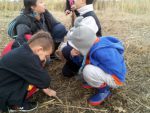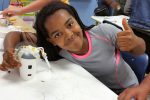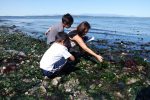Practice Briefs on Topic: “Instruction”
Topics:
Tweets by @STEMTeachTools
- Assessment
- Background
- Engineering
- Equity
- ESPAÑOL
- Implementation
- Informal Ed
- Instruction
- Practices
- Show All
Enter your email below to receive periodic updates about new tools. This is a low-volume email list, and we promise not to share your address with others.
Tweets by @STEMTeachTools
 Practice Brief 2
Practice Brief 2
Why should students investigate contemporary science topics—and not just "settled" science?
 Practice Brief 3
Practice Brief 3
Practices should not stand alone: How to sequence practices in a cascade to support student investigations
 Practice Brief 4
Practice Brief 4
Are there multiple instructional models that fit with the science and engineering practices in NGSS? (Short answer: Yes.)
 Practice Brief 6
Practice Brief 6
How Can I Get My Students to Learn Science by Productively Talking with Each Other?
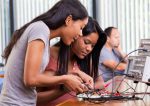 Practice Brief 7
Practice Brief 7
Learning STEM Through Design: Students Benefit from Expanding What Counts as "Engineering"
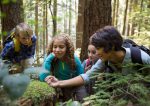 Practice Brief 12
Practice Brief 12
Scientific literacy involves understanding global climate change & what people can do about it
 Practice Brief 16
Practice Brief 16
Research Brief: The Informal Formative Assessment Cycle as a Model for Teacher Practice
 Practice Brief 17
Practice Brief 17
Beyond the Written C-E-R: Supporting Classroom Argumentative Talk about Investigations
 Practice Brief 19
Practice Brief 19
Why should students learn to plan and carry out investigations in science and engineering?
 Practice Brief 20
Practice Brief 20
Getting their hands dirty: Engaging learners in authentic science practices outside the classroom
 Practice Brief 23
Practice Brief 23
Evaluating Curriculum Materials for Alignment with the New Vision for K-12 Science Education
 Practice Brief 25
Practice Brief 25
How can formative assessment support culturally responsive argumentation in a classroom community?
 Practice Brief 27
-PDF En Español
Practice Brief 27
-PDF En Español
Engaging English Learners in the Science and Engineering Practices
 Practice Brief 31
-PDF En Español
Practice Brief 31
-PDF En Español
How to launch STEM investigations that build on student and community interests and expertise
 Practice Brief 32
Practice Brief 32
Why focus on science and engineering practices--and not "inquiry?" Why is "the scientific method" mistaken?
 Practice Brief 35
-PDF En Español
Practice Brief 35
-PDF En Español
How can I foster curiosity and learning in my classroom? Through talk!
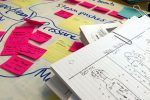 Practice Brief 37
-PDF En Español
Practice Brief 37
-PDF En Español
Beyond “misconceptions”: How to recognize and build on Facets of student thinking
 Practice Brief 39
Practice Brief 39
How can students’ everyday experiences support science learning through engineering design?
 Practice Brief 45
Practice Brief 45
How to focus students’ engineering design projects on science learning
 Practice Brief 47
Practice Brief 47
How can I promote equitable sensemaking by setting expectations for multiple perspectives?
 Practice Brief 48
Practice Brief 48
How can teachers guide classroom conversations to support students’ science learning?
 Practice Brief 52
Practice Brief 52
Supporting Preservice Teachers with Task-Based Instruction
 Practice Brief 53
-PDF En Español
Practice Brief 53
-PDF En Español
How to avoid possible pitfalls associated with culturally responsive instruction
 Practice Brief 54
Practice Brief 54
How to build an equitable learning community in your science classroom
 Practice Brief 57
Practice Brief 57
How place-based science education strategies can support equity for students, teachers, and communities
 Practice Brief 58
Practice Brief 58
How can science instruction leverage and develop student interests? Short answer: In so many different ways!
 Practice Brief 59
Practice Brief 59
Creating science learning experiences that support learners receiving special education services
 Practice Brief 60
Practice Brief 60
Designing ‘productive uncertainty’ into investigations to support meaningful engagement in science practices
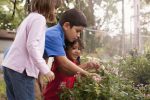 Practice Brief 61
Practice Brief 61
Using science investigations to develop caring practices for social-ecological systems
 Practice Brief 62
Practice Brief 62
What does subject matter integration look like in elementary instruction? Including science is key!
 Practice Brief 63
Practice Brief 63
How to integrate the argumentation from evidence practice into engineering design projects
 Practice Brief 66
Practice Brief 66
Why you should stop pre-teaching science vocabulary and focus on students developing conceptual meaning first
 Practice Brief 67
Practice Brief 67
Focusing Science and Engineering Learning on Justice-Centered Phenomena across PK-12
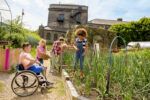 Practice Brief 68
Practice Brief 68
Keeping Climate Science Learning and Instruction Focused on Creating Solutions and Building Community Resilience
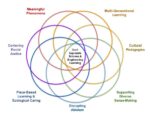 Practice Brief 71
Practice Brief 71
How can you advance equity and justice through science teaching?
 Practice Brief 72
Practice Brief 72
How can arguing from evidence support sensemaking in elementary science?
 Practice Brief 73
Practice Brief 73
Connecting science instruction to neighborhood life through collaborative design with community
 Practice Brief 75
Practice Brief 75
Using the crosscutting concepts to reflect on and refine your teaching
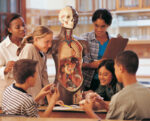 Practice Brief 76
Practice Brief 76
How do we present gender, sex, and sexuality as part of inclusive and accurate science teaching?
 Practice Brief 82
Practice Brief 82
Supporting observations, wonderings, systems thinking & “Should We” deliberations through Learning in Places
 Practice Brief 83
Practice Brief 83
Steps to Designing Justice-Focused Assessments in Science
 Practice Brief 84
Practice Brief 84
Let’s Talk Climate! Bridging Climate Justice Learning and Action Across School, Home, and Community
 Practice Brief 87
Practice Brief 87
Identifying local environmental justice phenomena for science and engineering investigations
 Practice Brief 89
Practice Brief 89
Attending to Race and Identity in Science Instruction
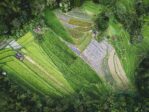 STEM Teaching Tool #98
STEM Teaching Tool #98
How might climate educators leverage the diverse funds of knowledge of rural communities?
 STEM Teaching Tool #102
STEM Teaching Tool #102

